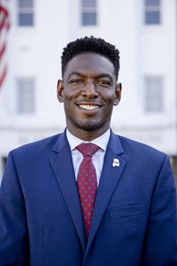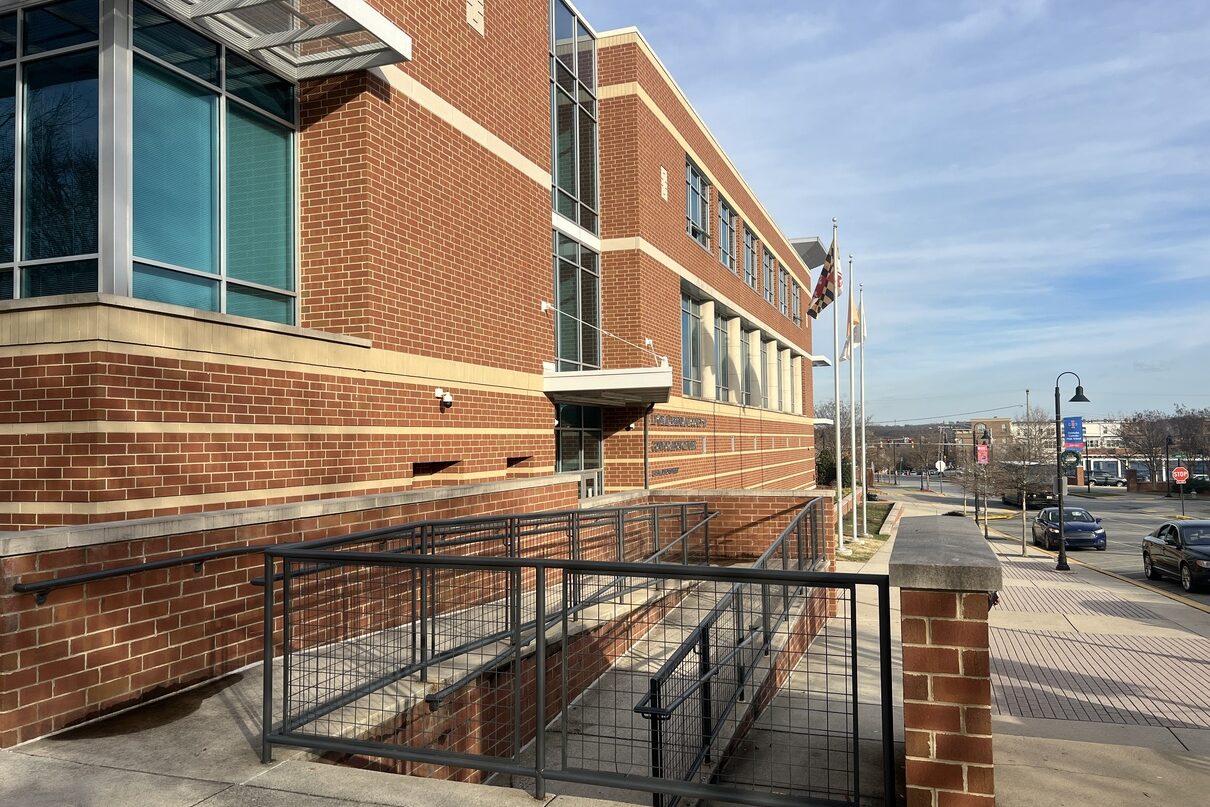A star basketball recruit moves from one top high school program to another in the Washington D.C. area, just before the start of the school year. Two more top prospects leave Alabama for Georgia.
None of these transfers has been explicitly tied to Name, Image and Likeness. But NIL and its impact on high school athletics hangs over all of them.
“A lot of this is hearsay but … it is changing the way that people get recruited,” said Dan McMahon, principal at DeMatha Catholic High School in Hyattsville for the last 25 years.
DeMatha, with 41 men’s basketball conference championships, is known for holding on to talented players. The Stags’ highly rated boys’ basketball team, which has had at least 20 alumni go on to careers in the National Basketball Association, recently felt the negative effects of an athlete transferring. In July 2024, the team lost a star player to St. Paul VI Catholic High School, a rival in the Washington Catholic Athletic Conference.
“He transferred after summer league. We just got a note saying that [he was leaving],” said McMahon, adding that he could not say whether NIL was a factor in the decision.
Capital News Service sought comment for this article from St. Paul VI Principal Tom Opfer, Head Basketball Coach Glenn Farello and Athletic Director Billy Emerson. CNS also contacted Diocese of Arlington Director of Media Relations Mary Shaffrey. All declined interview requests.
Compensation from NIL falls into two main categories, money from sponsorships which includes payment to an athlete for promoting a product or brand on social media and money from collectives, which are organizations that raise money from donors and distribute it to athletes in part to attract talented ones to their schools. Collectives are not allowed at the high school level.
WCAC commissioner Dwayne Foster told CNS that he is not aware of a school in the conference that has formed a collective. Foster noted that collectives are prohibited in the states in which the schools in the WCAC are located and that an investigation would ensue should any breach of the rules be brought to light.
“You have to have something tangible to be investigated,” Foster said. “We don’t chase ghosts in that space.”
“You have to have something tangible to be investigated. We don’t chase ghosts in that space.”
The threat of losing talented athletes isn’t exclusive to conference rivals. It also affects programs in states that don’t allow NIL.
Delaware’s policy allowing high school athletes to capitalize on NIL took effect in October 2024, but bordering states have had NIL policies in place longer.
“It would be naive not to think that there was a potential that some student athletes may try to transfer to a surrounding state,” said Delaware Interscholastic Athletic Association Executive Director David Baylor.
Alabama is one of nine states that does not allow high school athletes to participate in NIL deals. Neighboring states including Georgia allow high school NIL.
“I may be old fashioned, but I truly believe high school students should play for the love of the game,” said Steve Savarese, the Alabama High School Athletic Association’s former executive director.

Savarese’s view of NIL contrasts with the position of Alabama state Rep. Jeremy Gray, a former college football player at N.C. State whose district includes his hometown of Opelika, a two-hour drive from Birmingham. Gray is a supporter, saying he is concerned that some families in Alabama may choose to leave the state to pursue NIL. He noted that three student athletes have left Alabama recently to pursue opportunities in other states including Georgia and Virginia and possibly were influenced by NIL policies.
“It’s crucial for Alabama to reassess its stance. By doing so, Alabama can support its young athletes,” Gray said.
Alabama isn’t alone in debating the future of NIL. In North Carolina, a court ruling in October 2024 paved the way for public schools to permit NIL deals. Private schools in the state are governed by a different association and were allowed to receive NIL prior to the ruling.
Mike Ingersoll, a lawyer who has represented high school players in NIL-related cases said that he represents clients in NIL cases for high school athletes in part because “it can help them learn how to handle financial situations, something that a lot of professional athletes struggle with,”
One Ingersoll client is quarterback Faizon Brandon, rated the No. 1 player in the 2026 high school class by 247Sports.com. Brandon, who attends Grimsley High School in Charlotte, has committed to play football at the University of Tennessee. Before the court ruling, he was not permitted to participate in NIL.
Ingersoll called North Carolina’s policy “very inconsistent,” noting that “the No. 1 high school football player in North Carolina for the class of 2026 couldn’t receive NIL because he goes to a public school.” Just days after the court ruling, Faizon signed a multi-year deal with Leaf Trading Cards.


You must be logged in to post a comment.